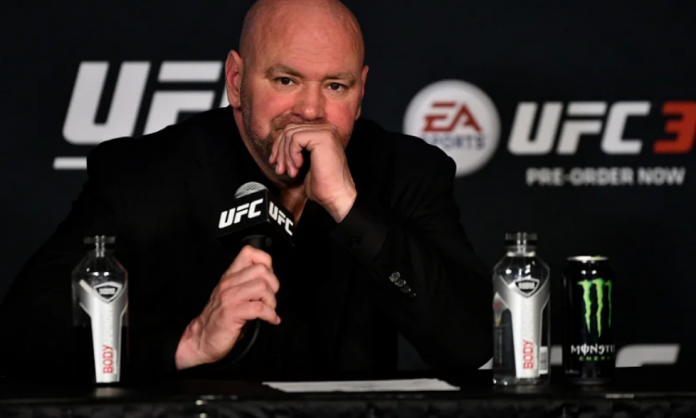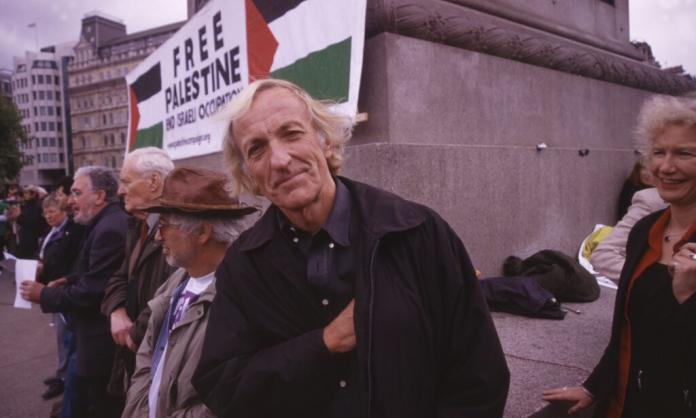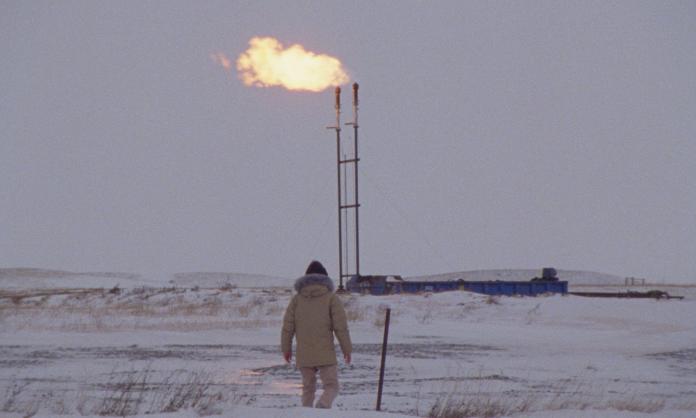The Ultimate Fighting Championship (UFC), the flagship mixed martial arts sports league, is celebrating its 30th anniversary this year. From inauspicious beginnings, it has been built into a multibillion-dollar enterprise, raking in profits from the blood, sweat and broken bones of its exploited fighters.
Combat sports are a predominantly working-class activity in which people with limited options put their bodies on the line to overcome poverty and gain respect, while capitalists make the big money without breaking a sweat. It’s a typical story of capitalist profiteering and exploitation, even within an atypical industry.
In 1993, the first UFC event was held, advertised as “ultra-violent” with “no holds barred”. What that meant was there were no rules, no weight classes, no rounds, no timeouts or point system: the only way a fight could end was by knockout, submission or a corner throwing in the towel.
The first few UFCs were barbaric and attracted negative publicity, but this only increased interest and sales. Initially, the company promoted the brutality and dodged safety regulations by holding events in US states without athletic commissions. However, states began banning UFC events, and pressure was put on cable companies to cancel broadcasting, which was a massive financial hit to the owners, as most of their profits came from pay-per-view sales.
Fearful of a threatened nationwide ban being implemented, the UFC was quickly sold for $2 million in January 2001 to Zuffa (fight in Italian), a Nevada sports promotion company created to be the parent company of the UFC. The UFC was so broke at the time that all Zuffa actually purchased was the branding, 30 fighters on contracts and a wooden octagon.
Zuffa was owned by the Fertitta brothers, who had inherited their father’s Station Casinos chain. They were convinced to take on the UFC by their old friend Dana White, a boxercise coach, who they then installed as president. Immediately they began cleaning up the competition by adopting rules, a dress code, rounds, weight classes and scoring, as they sought to make peace with the athletic commissions and have state and broadcasting bans overturned.
They were well placed to do this. The younger of the Fertitta brothers, Lorenzo, was the chairman of the Nevada State Athletic Commission (NSAC), which was the first commission to allow MMA fights. Lorenzo used these connections to have other states slowly but surely overturn bans and allow MMA fights. By 2016, all states were embracing the sport.
When the Fertitta brothers eventually stepped away from the UFC, they made sure to keep their connections intact—one of the current NSAC commissioners, Staci Alonso, is a former executive vice-president at Station Casinos and was appointed to the commission by a Republican governor, who had received donations from both Zuffa and Station Casinos.
In early 2001, a month after Zuffa purchased the UFC, Donald Trump gave the new UFC owners their first lifeline. Trump offered White and the Fertittas one of his casinos in New Jersey to hold their first two UFC events, UFC 30 and 31. This was an important platform for Zuffa, and by UFC 33, the sport was back on cable TV and a once failing business began raking in money. Trump’s early favour to the UFC has been paid back tenfold—UFC president Dana White endorsed Trump for president, speaking at the Republican National Convention in both 2016 and 2020. Trump is given front row seating whenever he likes, which he uses to ingratiate himself with the large audiences. He also enjoys close connections with a number of UFC fighters who regularly promote him and his politics, inside and outside the cage.
The UFC has continued its rise. In 2016, it was sold for $4 billion to the company Endeavor. President Dana White stayed on and also held on to a 9 percent share in the company. In 2022, the UFC generated $1.3 billion in revenue, with similar numbers this year ($610 million in the first six months). Today the UFC is valued at $12.1 billion.
A small number of the fighters have benefited from the sport’s huge turnover. The UFC’s biggest star, Conor McGregor, regularly showcases his extravagant lifestyle and has the perfect rags-to-riches story for the company to promote. The Irish star had been living off government welfare before signing with the UFC and went on to headline Madison Square Garden after New York finally overturned its ban on MMA. UFC 205 broke the record for tickets sold at both a UFC event and at Madison Square Garden, and McGregor pocketed $6,812,374.
For most of the fighters, however, it is a very different story. Battles over wages and work conditions are becoming more frequent as fighters struggle to survive. A class action began in 2014, when a group of both active and retired fighters formed the Mixed Martial Arts Fighters Association and filed a lawsuit against the UFC over salaries. The class action now includes around 1,200 fighters, and their main argument is that the UFC has created a monopoly over the sport, which it uses to control the market and underpay fighters. The company has acquired five of its competitors (Strikeforce, Pride, World Extreme Cagefighting, International Fight League and World Fight Alliance) and either brought those companies’ fighters into the UFC or sacked them.
The class action was preceded by years of fighters attempting to get pay rises and improvements to conditions.
Before the class action forced the UFC to disclose the salaries of its top fighters (which is the only reason we know how much McGregor was paid at UFC 205), this was a closely guarded secret. Salary secrecy is a widely used and important tactic that tilts contract and pay negotiations in favour of the employers. So advantageous is it that the Fertitta brothers successfully used their connections to lobby the Nevada State Athletic Commission to change the law requiring the publication of fighters’ salaries. Not publishing salaries then became the new norm across most of the US.
In 2015, the UFC further squeezed fighters’ purses by changing sponsorship rules to ensure that it made a maximum profit. In the earlier days of the UFC, fighters were able to make money by bringing banners into the events with their sponsors’ logos and were able to wear sponsored clothing of their choice. In 2015, the UFC signed an exclusive deal with Reebok (and later sports brand Venum) which forced all fighters to wear Reebok/Venum.
The ranking system in the UFC is also not transparent. Ranking is determined solely by the UFC leadership, and it is widely recognised that fighters are ranked and offered prime fights based on their marketability, rather than their competitive record. And it’s game over if you offend the boss.
Tim Kennedy, a fighter who was brought into the UFC after the company bought the rival organisation Strikeforce, said in 2013: “It’s a good thing I have another job because the UFC doesn’t pay very well ... I hope this isn’t the reality of the sport. If it is, I should probably go do something else, like empty trash cans. I’d make more money than I do now”.
UFC president Dana White responded to this in an interview, saying: “Be a fucking garbage man. Who gives a shit about Tim Kennedy?” Days later, White was still pissed off about being challenged and decided to lecture everyone: “We’re in this fucking society now where everybody should win a trophy. No, everybody doesn’t win a fucking trophy ... the guys who rise to the top are the guys who deserve the money. Let’s not forget we live in fucking America, okay? The land of opportunity. I feel like we’re in this fucking country where the American Dream is, like, going away. Nobody has the American Dream any more. I am living the fucking American Dream”.
Compare these words to those of Norma Dumont, who is ranked eleventh in the women’s bantamweight division: “I’m fighting to survive, to live, to pay the rent, my bills. That’s what some people don’t understand. I’ve never had a good financial situation. I’ve always been hustling. People who are close to me know it. People think that because I’m in the UFC, in Vegas, I must be swimming in money ... We get paid every four months or so—if you’re an active fighter. If you get injured, you’re fucked”.
After years of individual disputes, a number of high-profile fighters formed the Mixed Martial Arts Athletes Association (MMAAA) in 2016 to advocate for better pay and conditions. Big UFC stars joined the association, such as Georges St-Pierre and Cain Velasquez. However, the Fertitta brothers had dealt with attempts by workers to unionise at their casinos before, and used the experience to go on the attack.
First, management argued that fighters are independent contractors, not employees, and therefore do not have the right to unionise. Then, fighters who organised were punished and put under pressure to submit. One UFC fighter, Leslie Smith, who was very vocal about the need for a fighters’ union, was let go by the UFC in 2018, even though she was on a two-fight winning streak and with one fight still left on her contract. She took this unfair dismissal and breach of contract to court and won, but the case was quickly appealed, a delaying tactic that Leslie’s lawyer says is typical of the UFC.
The scare campaign worked and the MMAAA never got off the ground. Fighters either didn’t join, or those who did later resigned. MMAAA had taken the strategy of visiting different gyms across the US to speak to fighters, as there is no centralised work/training place. Fighter after fighter told the union that they supported the union but did not want to join for fear of repercussions. Fighters might have had more confidence had a larger number of the high-profile UFC stars joined the union, but not enough did, in no small part because their pay and conditions are much better than most of the fighters’.
Appeals were made to Conor McGregor to join the MMAAA, but he responded in an interview, seemingly having forgotten the time he spent dependent on government welfare: “I’m focusing on me. I’m focusing on my family’s security, my family’s financial security. That’s all I can do. So when I saw that, I just thought it was the biggest, fakest load of shit I’ve ever seen in my life. So, I don’t know. I wish everyone well, but you need to focus on yourself. You need to stop putting your hand out. Everyone’s hands are out, everyone wants things for free”. Fan favourite Donald Cerrone, who initially joined the association, later said he regretted it and that he should have just spoken to Dana White about his problems.
Despite these setbacks, there continue to be rumblings of discontent in the UFC. The argument that fighters are inherently against unions because of the individualistic nature of combat sports is far from the truth. Fighters may seem like individuals in the ring, but to get there takes a team effort. Hours are spent in the gym with a coach and training partners, and nutritionists, strength and conditioning coaches, physiotherapists and sports psychologists are also part of any successful athlete’s team. The Athletic (owned by the New York Times) polled 170 professional MMA fighters in 2020 and found 79.4 percent said they would be in favour of organising the equivalent of a professional union.
While the UFC has monopolised the sport of MMA for the last 30 years, using political connections, strong lobbying power and bullying to make enormous profits, it’s hopefully only a matter of time before fighters finally get a win over it.










